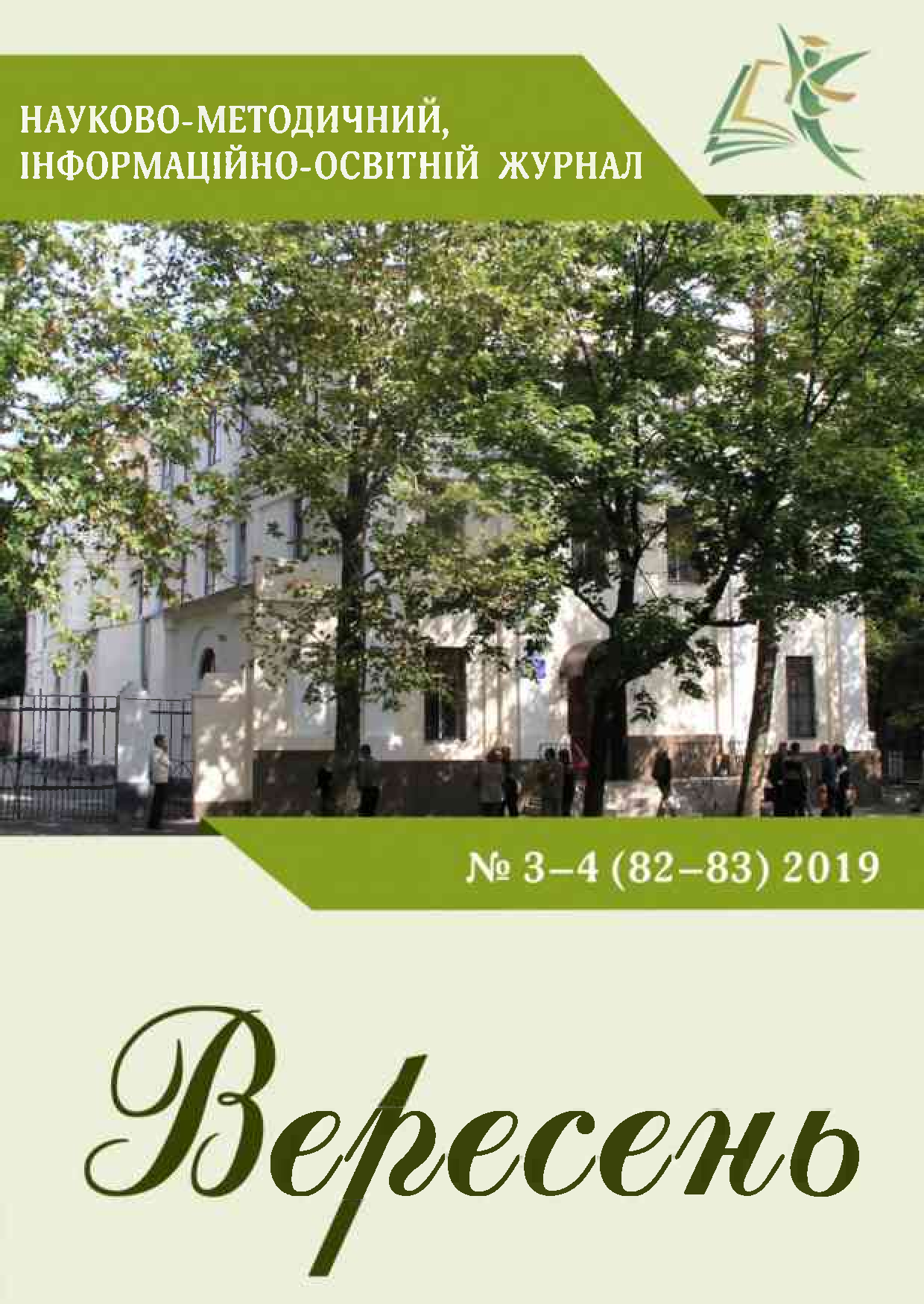THE ROLE OF STUDENT PROJECT WORK IN THE PROCESS OF IN-DEPTH STUDY OF NATIONAL LITERATURE
Keywords:
Keywords: Ukrainian contemporary fantasy, myths, pagan gods, spiritual power, humanitarian culture, civic responsibility, national identity, world globalization process.Abstract
The aim of the article is to outline unique features of using project work in the process of in-depth study of national literature, that is supported by the system of extracurricular classes, educational value of which is driven by giving students opportunities to choose directions of extended academic work.
The project work is closely related to the development of competence driven education, which is the paradigm of modern educational space, as it teaches to gain knowledge in the process of the independent research and to solve further educational tasks. The method of project work is the most appropriate and effective during literature lessons and extracurricular work. The in-depth study of national literature is reinforced by the system of extracurricular classes.
The study of Ukrainian mythology as an integral part of the native and world culture becomes a foundation for understanding fantasy works, their differences from the science fiction works, and this is contributing to formation of the reading culture.
References
Bulashev Gh. (1992). Ukrajinsjkyj narod u svojikh leghendakh, relighijnykh poghljadakh ta viruvannjakh. Kosmoghonichni ukrajinsjki narodni poghljady ta viruvannja [The Ukrainian people in their legends, religious views and beliefs. Cosmogonic Ukrainian folk views and beliefs]. K.: Dovira, 414, 5–15 (ukr).
Jermakov I. Gh., Puzikov D. O. (2007). Zhyttjevyj proekt osobystosti: vid teoriji do praktyky. Praktyko zorijentovanyj posibnyk [Life project of the personality: from theory to practice. Practically oriented manual]. K.: Osvita Ukrajiny, 212 (ukr).
Zavadsjka V., Muzychenko Ja., Talanchuk O., Shalak O. (2002). 100 najvidomishykh obraziv ukrajinsjkoji mifologhiji [100 most famous images of Ukrainian mythology]. K.: Orfej, 448 (ukr).
Zavitajlo T. (2006). Zbroja voghnju [Weapon of Fire]. K.: Nash chas, 144 (ukr).
Koncepcija literaturnoji osvity [The concept of literary education]. Avaliable at: http://osvita.ua/legislation/Ser_osv/13508/ (ukr).
Loghvinenko N. M. (2014). Suchasne ukrajinsjke fentezi. Navchaljna proghrama kursu za vyborom. 8–9 klasy [Modern Ukrainian fantasy. Optional course curriculum. Grades 8–9]. Ukrajinsjka literatura v zaghaljnoosvitnij shkoli, № 2, 48, 35–39 (ukr).
Novoseljsjka S. V. Proektna dijaljnistj uchniv na urokakh ukrajinsjkoji movy ta literatury [Project activity of students in the Ukrainian language and literature lessons]. Avaliable at: http://osvita.ua/school/lessons_summary/edu_technology/36484/ (ukr).
Plachynda S. (2013). Mify i leghendy Davnjoji Ukrajiny [Myths and legends of Ancient Ukraine]. K.: FOP Stebljak O.M., 304 (ukr).
Chanova M. (2003). Metod proektov v sisteme problemnogo obuchenija proektov [The project method in the system of problem-based learning of projects]. Sibirskij uchitel', № 1. Avaliable at: http://www.ioso.ru/distant/project/meth (rus).
Shevchuk V. Gheorghij Bulashev ta jogho pracja pro ukrajinsjkyj narod [Gheorghij Bulashev and his work on the Ukrainian people]. K.: Dovira, 414, 5–15.
Downloads
Published
Versions
- 2020-08-29 (2)
- 2020-08-29 (1)




